SPECIAL REPORT • FOOD SYSTEMS
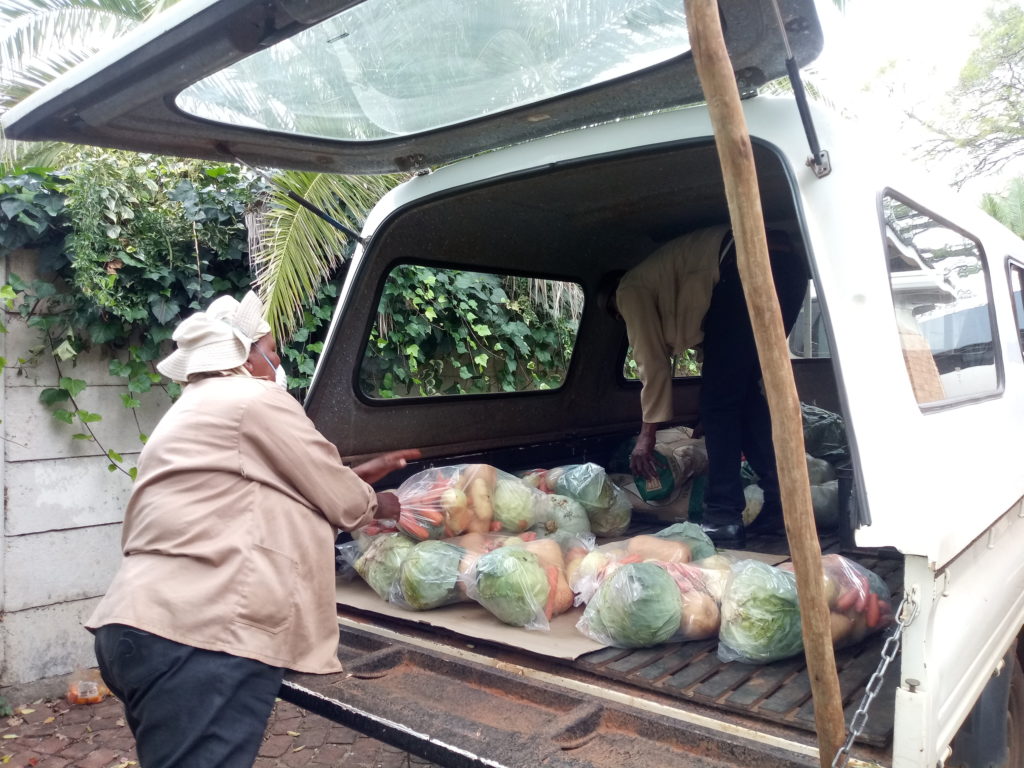
to struggling households in Alexandra township, April 2020.
Credit: Kesselman.
COVID-19 showed us the importance of guaranteeing the right to food
South Africa’s food crisis—manifested in malnutrition and obesity among a large section of the country’s population—stems from two challenges, namely, the profit-oriented and environmentally unfriendly food system, and the loss of indigenous, nutritious local food production. New inspiring initiatives, such as the one in Belo Horizonte, Brazil, narrated below, have been created to overcome food insecurity even in the midst of the pandemic
BY Brittany Kesselman | Society, Work & Politics Institute (SWOP), Wits University, Johannesburg
WHEN THE COVID-19 pandemic struck, South Africa already faced a serious food crisis with high levels of food insecurity and malnutrition, as evidenced by high levels of stunting among children. At the same time, South Africa is experiencing rising levels of obesity and diet-related non-communicable diseases (NCDs) such as diabetes, hypertension and cardiovascular disease. This ‘double burden’ of under- and over-nutrition causes significant health challenges and robs the country of its future potential, because children’s access to good nutrition in their first 1000 days of life, influences their physical and cognitive development for the rest of their lives.
The country is also experiencing the ‘nutrition transition’ as people move from physically active rural lifestyles in which they produce their own food to more sedentary lives in urban areas, where they have access to more processed foods high in sugar, salt and fat. These processed foods are convenient and inexpensive, but they are also linked to non-communicable diseases.
There is enough food in the country to feed everyone, but due to high levels of poverty and unemployment, not everyone can afford access to it
The pre-existing food crisis in South Africa is not due to a shortage of food. There is enough food in the country to feed everyone, but due to high levels of poverty and unemployment, not everyone can afford access to it. The corporate-controlled food system prioritises profits over people’s rights to healthy food, with up to 30% of food lost or wasted while millions go hungry. In addition, the globalised food system has experienced volatile prices over the past decade, with the price of basic foodstuffs in South Africa rising dramatically since the start of the COVID-19 pandemic.
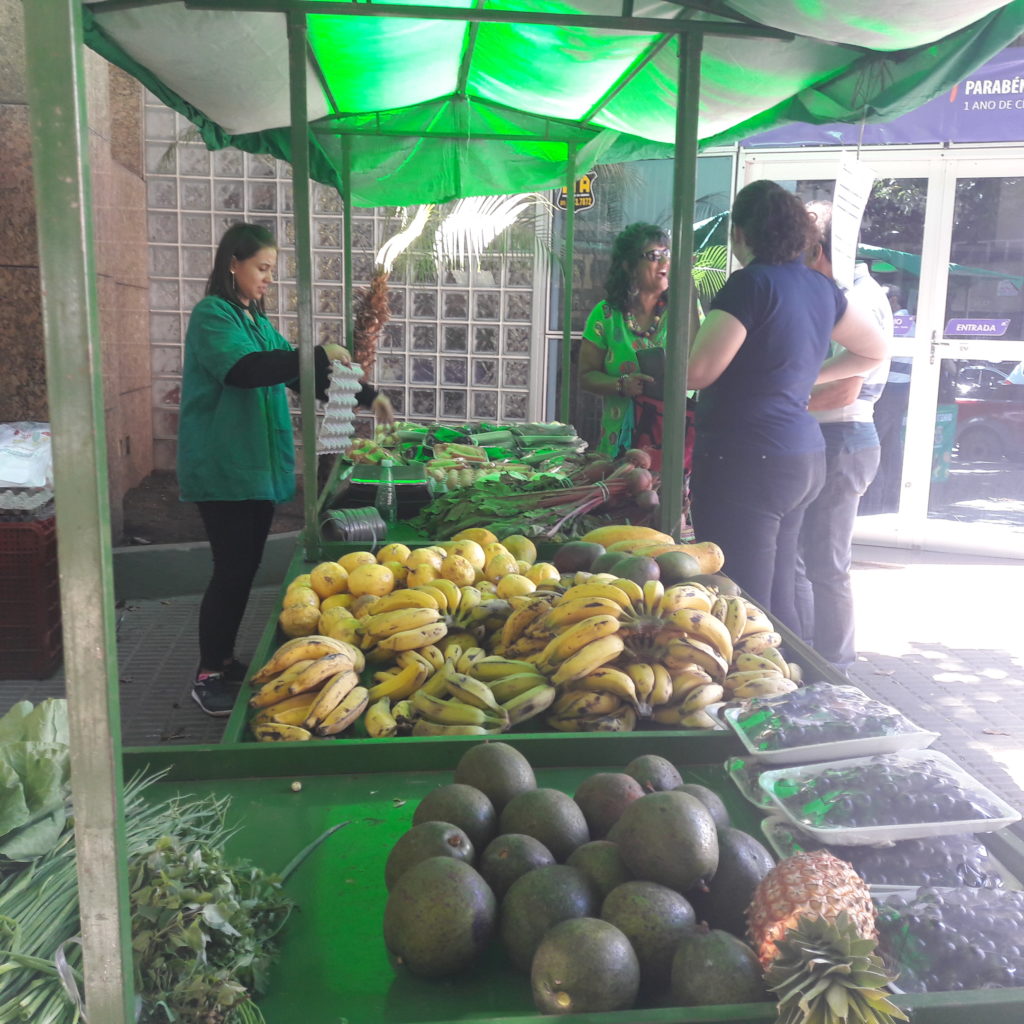
Beyond issues of malnutrition and diet-related NCDs, the global food system is also a contributor to climate change. Researchers estimate that the food system is responsible for up to one third of global greenhouse gas emissions, through deforestation; carbon-based fertilisers; energy use on farms and in food transportation, processing and storage; plastic food packaging; livestock emissions; and food waste. Besides its carbon footprint, the food system also contributes to other environmental damage such as pollution of water, land and air, as well as the destruction of biodiversity and habitats.
COVID-19 and food access
The COVID-19 pandemic and the strict measures imposed to contain its spread, brought the issue of food access to public attention in South Africa, as many people who had been able to afford just enough food to survive, suddenly found themselves going without. Job losses, a crackdown on informal vendors, and price increases caused by interruptions in global food and agriculture supply chains, all contributed to a sharp rise in food insecurity. At various times, supermarket shelves were empty, informal traders were banned from selling food on the streets and some small-scale farmers could not access their fields.
According to one study, 47% of households ran out of money to buy food during the initial lockdown in April 2020. Increased levels of child hunger in particular were worrying, but unsurprising, given the abrupt closure of schools and school-based nutrition programmes which provide the only meal of the day for some children in food insecure households.
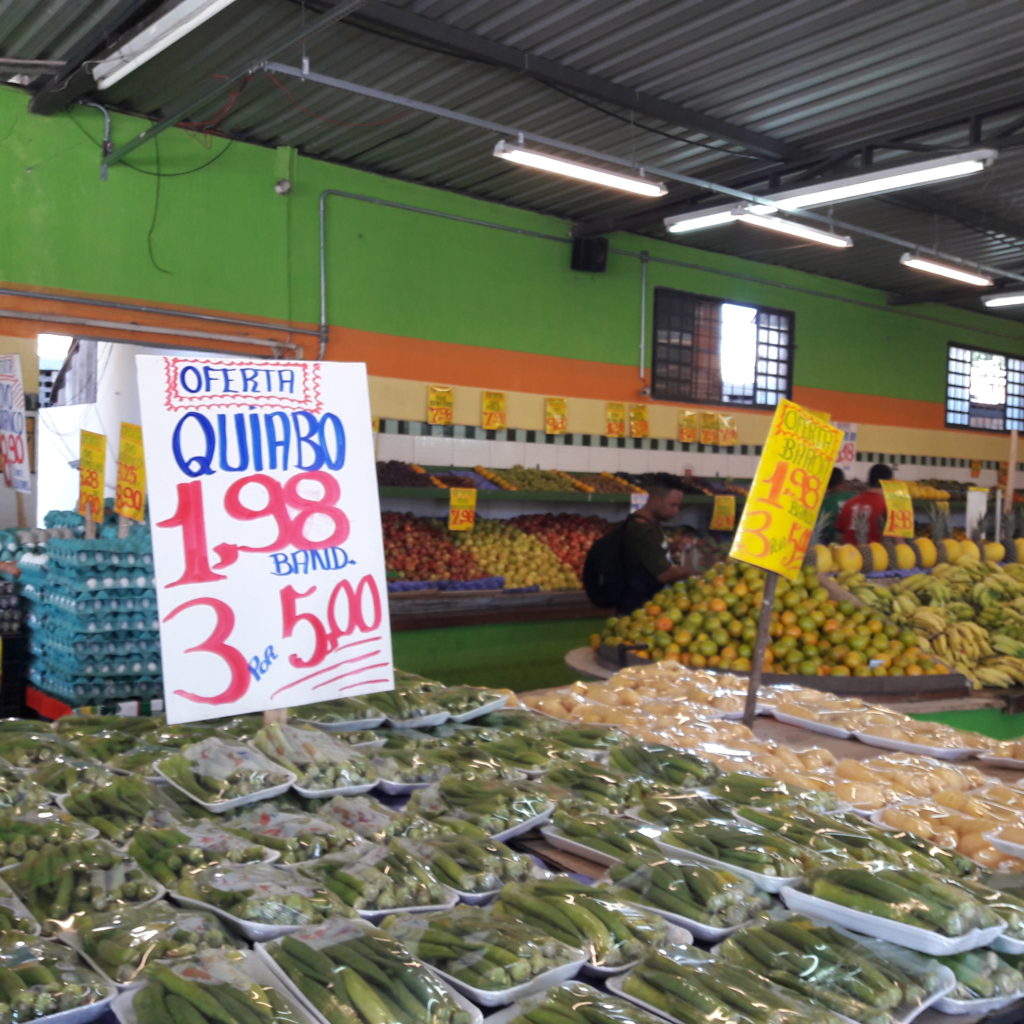
COVID-19 also illustrated the linkages between nutrition and health, specifically the importance of ensuring that all South Africans have access to sufficient, healthy food. A nutritious diet is directly linked to a healthy immune system, which in turn affects people’s susceptibility to COVID-19 and the severity of the disease if they are infected. Both micronutrient deficiencies (malnutrition) as well as obesity have negative effects on the immune system. Early data showed the correlation between NCDs and the severity of COVID cases. A study from Cape Town showed that COVID-19 patients with diabetes were almost four times more likely to be hospitalized and over three times more likely to die from COVID-19 than patients without diabetes.
Both micronutrient deficiencies (malnutrition) as well as obesity have negative effects on the immune system
Best practice in food policies: Belo Horizonte, Brazil
While most cities and countries are experiencing increasing food insecurity, the city of Belo Horizonte, Brazil, is known as ‘the city that ended hunger’ through a set of integrated policies and programmes grounded in the right to food. Since 1993, the city’s dedicated food unit, in co-operation with other municipal departments, has implemented food and nutrition security programmes that cost only 2% of the municipal budget. These seek to support small-scale family farms and urban farmers; improve access to fresh, healthy foods; and increase awareness around nutrition and health. (See some of its most innovate initiatives in the annexed text box)
Belo Horizonte has become a global leader in ensuring food security and fighting malnutrition and obesity by improving access to fresh fruits and vegetables. The city’s programmes also support decent incomes for small-scale producers through direct market access and public procurement. In addition, environmentally sustainable production is encouraged through additional funds to purchase agro-ecologically farmed foods. Beyond the health and economic benefits, the programmes support social cohesion through communal eating spaces, cultural events featuring local gastronomy, and local farmers’ markets where people can meet the farmers who grow their food and enjoy a sense of community.
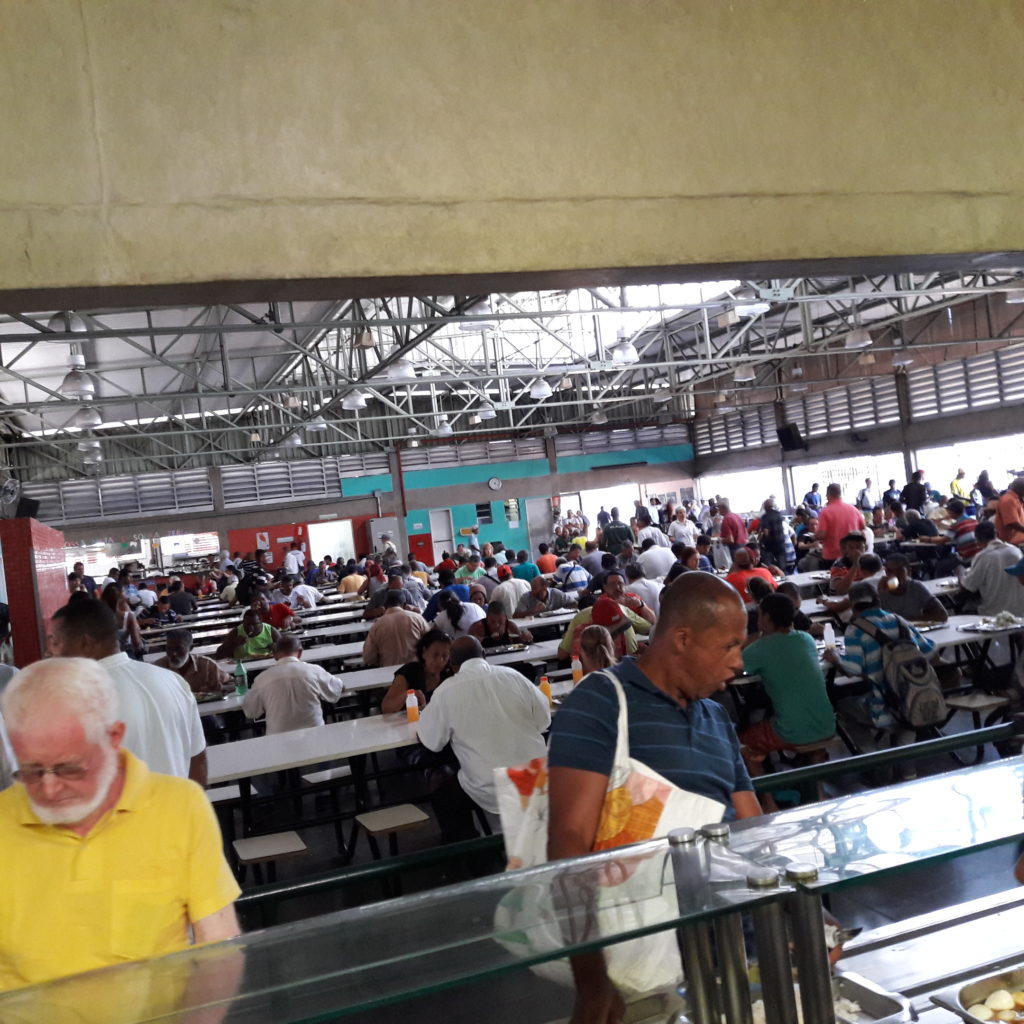
When COVID-19 hit Brazil, the city of Belo Horizonte was already in a good position to address the additional challenges brought by school closures and other lockdown measures. The popular restaurants, for example, had to switch quickly from canteen seating to takeaway meals, to avoid large gatherings of people where the virus could be spread. They also extended their opening times over weekends. The city launched an open-air dining space where it could continue to serve healthy meals and also distribute fruit parcels. In addition, the families of schoolchildren received vouchers for groceries, to be redeemed at nearby shops, so that children would not be left without access to healthy food. The food bank expanded its donations to organisations serving vulnerable populations. The city’s experience with food and nutrition security, as well as its commitment to guaranteeing the right to food, enabled it to adjust quickly to the new circumstances of COVID-19.
South Africa’s response to food insecurity
In the context of these COVID-related disruptions of food access, the media showed images of long lines for emergency food assistance, with government and civil society groups stepping up efforts to feed the population. Government attempted to distribute food parcels, though these were criticized for being insufficient, late, politicised and unhealthy. Community groups and non-governmental organisations increased existing programmes and launched new ones to try to fill the void.
Some of the civil society responses illustrate potential longer-term solutions for increasing access to affordable, healthy food. In the face of disruptions to national and global supply chains, more localized food systems began to emerge. Across South Africa, community action networks (CANs) sprang up to address hunger, with volunteers providing meals and other assistance to fellow community members.
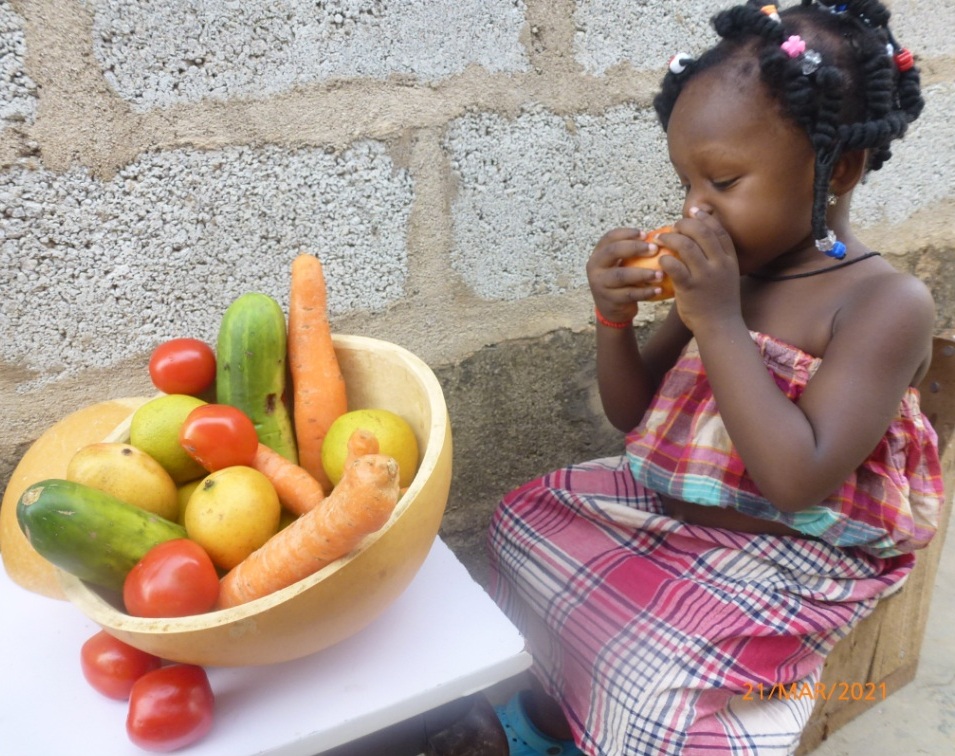
In Gauteng, the C19 People’s Coalition (C19PC) sought to link small-scale farmers— who lost access to their usual markets—to communities in need of food assistance. Unlike most food parcels, which were procured from large corporations and contained non-perishable items with almost no nutritional value, the C19PC vegetable parcels sought to support the livelihoods of small-scale farmers while also promoting the health of vulnerable households through access to fresh vegetables. Another lockdown food initiative in Johannesburg has evolved into The People’s Pantry, which supports seven community kitchens and also runs a community swap shop that enables people to earn points by collecting recyclables, which they can then spend on food and other basic items. These initiatives provide glimpses of what an alternative, localised food system, based on the right to food, might look like.
Belo Horizonte shows how a city with a commitment to guaranteeing the right to food, and ensuring food access, is able to adapt its programmes in times of crisis
Lessons for a more just food system
The disruption caused by COVID-19 caused tremendous suffering, but it also highlighted opportunities for more localised, solidarity-oriented food systems which provide decent livelihoods to small-scale farmers and nutritious food to the people in their communities. The case of Belo Horizonte provides many useful lessons. It shows that low-cost, innovative food programmes can have a real impact on improving access to healthy food. Belo Horizonte also shows how a city with a commitment to guaranteeing the right to food, and with experience in ensuring food access, is able to adapt its programmes quickly in times of crisis. As climate change worsens, we can expect more frequent crises in the future. Thus, it is important to adopt and implement comprehensive food policies and improve co-operation between the South African government and civil society to ensure access to sufficient, nutritious food for all, in the name of justice and health.
| Dates To Remember |
|
April 2 – World Autism Awareness Day 4 – International Day for Mine Awareness and Assistance in Mine Action 6 – International Day of Sport for Development and Peace 7 – International Day of Reflection on the 1994 Genocide in Rwanda 7 – World Health Day 15 – Good Friday 17 – Easter Sunday 21 – World Creativity and Innovation Day 22 – International Mother Earth Day 23 – English & Spanish Language Day 24 – International Day of Multilateralism and Diplomacy for Peace 25 – World Malaria Day 28 – World Day for Safety and Health at Work 30 – Our Lady, Mother of Africa 30 – International Jazz Day May 1 – St Joseph the Worker, Workers’ Day 3 – World Press Freedom Day 8 – Remembrance and Reconciliation for Victims of Second World War 8 – World Migratory Bird Day 15 – International Day of Families 17 – World Telecommunication and Information Society Day 20 – World Bee Day 21 – World Day for Cultural Diversity for Dialogue and Development 22 – International Day for Biological Diversity 29 – Ascension of the Lord 29 – International Day of UN Peacekeepers 30 – World No-Tobacco Day |
